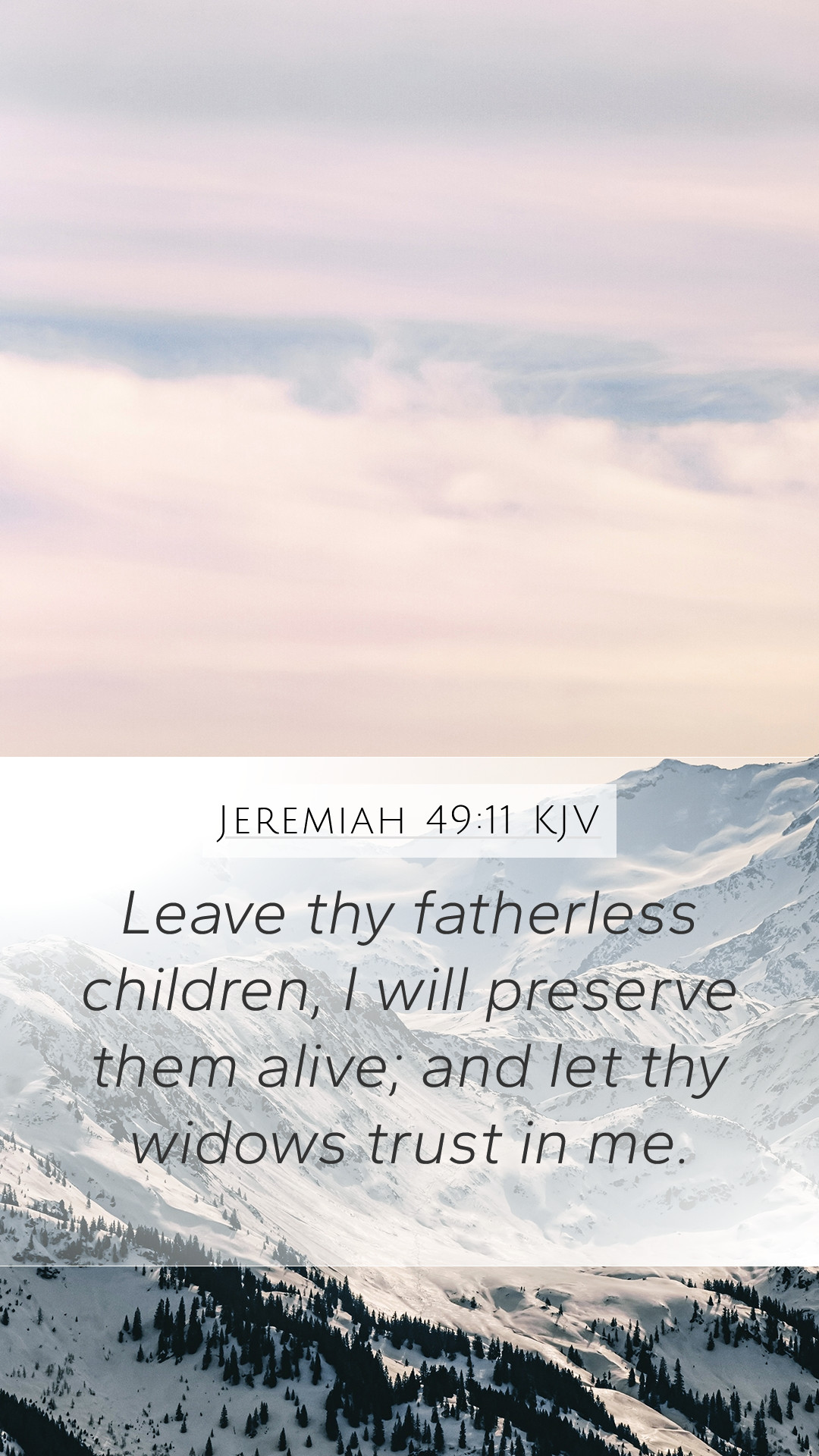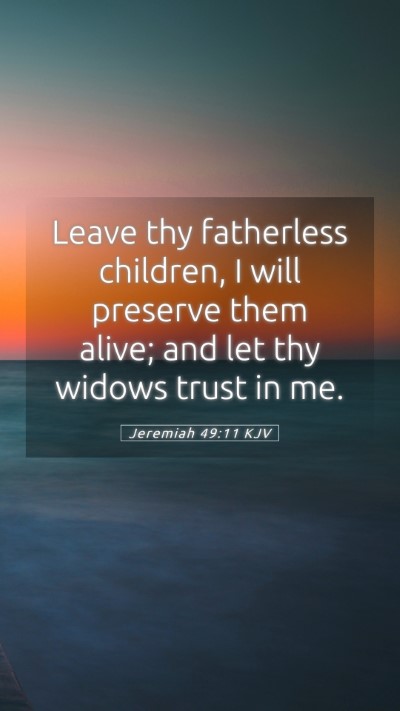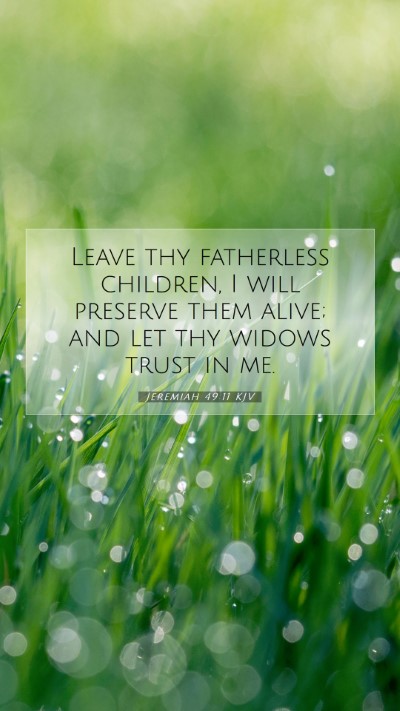Understanding Jeremiah 49:11
Jeremiah 49:11 states: "Leave your fatherless children; I will preserve them alive; and let your widows trust in me." This verse conveys a powerful message of hope and assurance amidst grief and loss, particularly to the vulnerable members of society: orphans and widows.
Bible Verse Commentary
This scripture is part of a prophecy directed at the Ammonites, a nation that often conflicted with Israel. God speaks here in a tone of compassion and care towards those who are most affected by war and disaster—the fatherless and widows. Public domain commentaries provide several layers of insight into this verse:
- Matthew Henry Commentary: Henry emphasizes the divine promise that God will take care of the fatherless children. He highlights that God's provisions extend to those who have lost their parents, assuring them of His protective nature. Furthermore, widows are instructed to trust in God, indicating that He is their source of strength and sustenance.
- Albert Barnes Notes: Barnes elucidates the historical context, discussing how vulnerable groups were often neglected in ancient societies. His commentary reflects on God’s advocacy for the weak, illustrating that while nations may fall, God's love and concern for human life remain unwavering, encouraging widows to place their confidence in Him.
- Adam Clarke’s Commentary: Clarke interprets this scripture as a call to those in despair to rely fully on God. He mentions that God has a unique regard for the orphan and widow, proposing that He is their ultimate protector. Clarke’s insights remind readers that during tumultuous times, it is crucial to look to God for support and deliverance.
Key Themes and Meanings
The verse encapsulates several important themes:
- Divine Protection: The mention of God preserving the fatherless underscores His role as a guardian and protector, offering hope to those who are most vulnerable.
- Trust in God: The directive for widows to trust in God emphasizes the necessity of faith during trials. It serves as a reminder of the importance of maintaining trust in divine providence, especially when human support is lacking.
- Social Justice: This verse highlights God's concern for social justice, advocating for the marginalized and reinforcing the truth that God calls in the weak and entitled to His favor.
Applying Jeremiah 49:11 in Daily Life
Incorporating the lessons from this verse into daily life includes:
- Reaching Out: Engaging in acts of kindness towards orphans and widows, ensuring that the vulnerable in society are cared for.
- Trusting God: In times of loss or hardship, individuals are reminded to rely on their faith and look to God, who is their ultimate source of help.
- Social Advocacy: Supporting social justice movements that align with protecting and uplifting the disadvantaged echoes God's concern reflected in this scripture.
Cross References
This verse connects with several passages throughout the Bible that emphasize God's care for the fatherless and widows:
- Psalms 68:5: "A father of the fatherless, and a judge of the widows, is God in his holy habitation."
- James 1:27: "Pure religion and undefiled before God and the Father is this, To visit the fatherless and widows in their affliction, and to keep himself unspotted from the world."
- Exodus 22:22-24: These verses warn of God’s wrath against those who mistreat widows and orphans.
Conclusion
Jeremiah 49:11 serves as a profound reminder of God’s compassionate nature, particularly towards those who experience loss and hardship. The assurance that God will preserve the fatherless and that widows can trust Him reinforces the centrality of faith in the restorative power of divine love. As believers contemplate this verse, they are encouraged to embrace its teachings through practical actions, fostering a community that reflects the heart of God toward the marginalized.


